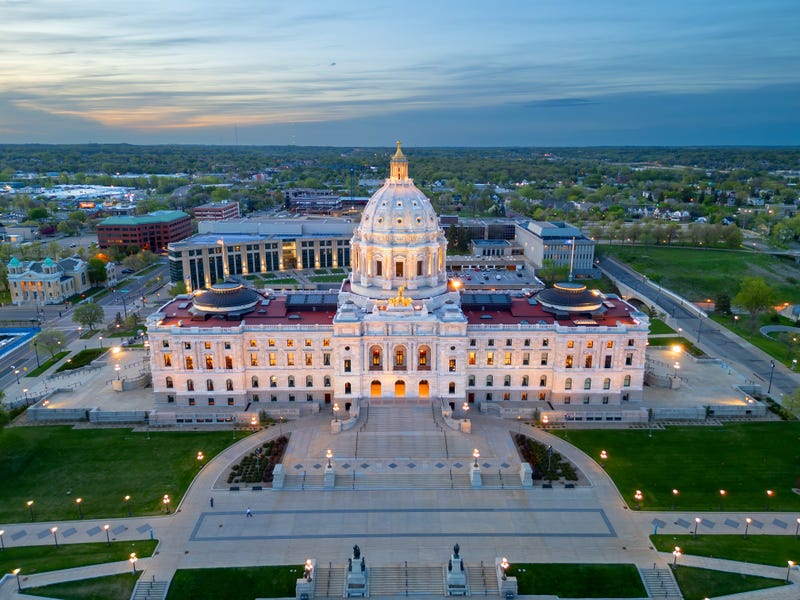
Minnesota Governor Tim Walz is giving a preview of what the new legislative session might look like when it gets underway in just a few weeks.
Walz told WCCO Morning News with Vineeta Sawkar that with an evenly split House of Representatives, and the DFL in control of the State Senate, there will need to be compromise.
"The question will be, as I've told Republicans, we're going to compromise but we're not going to compromise on values," Walz explained. "Last year at the end of the session, Republicans wanted us to remove all vaccine requirements for children in schools. I am not allowing measles to get a hold in Minnesota. So that, no, I'm not going to compromise on things like that."
What will Walz be willing to compromise on? He says when it comes to the budget, there will have to be some give-and-take.
"As far as spending and taxes and programs, absolutely we'll be there with them," the governor says.
A Session Full Of Unknowns
Political reporter for TPT Television and Almanac, Mary Lahammer, says there is still a lot to sort out. What was a tie between Democrats and Republicans in the State House is now a one-seat advantage for the GOP after a judge ruled a Roseville race won by the DFL was not legal because the candidate did not live in the district, as required by state law.
Until that is sorted out, the Republicans will have control.
"There's no way, if that stands, that there would be a special election in time," explains Lahammer. "And part of this, we have precedent. I think we've been talking for months about this and a lot of the attention was going to the court case, in the recount in Shakopee. That's where current Representative Brad Tabke's in office and the 20 votes were lost or thrown away early on in that process. But I've always thought that that was a harder case for Republicans to win than the residency challenge. I've seen a successful residency challenge."
"It was just back in 2017 when sitting State Representative Bob Barrett was ruled not living in his district and could not be seated," Lahammer continues. "And there was a special election, and that special election didn't happen until February. So it takes time for the governor to issue a special election, so that would mean when session starts in January, Republicans would have the majority and they would have enough votes to essentially break that tie and elect Republican Lisa Demuth (R- Cold Spring) as Speaker of the House."
There is a very good chance that once a special election happens, the House goes back to a tie. The Roseville district in question is heavily Democratic with a 30% margin of victory there despite the residency challenge.
But, once a speaker is elected, no matter what happens with the makeup of the legislature it cannot be undone.
"You can't un-elect or unseat a speaker with a tie, so even if they have a majority, Republicans for two weeks will have enough votes to elect Speaker Demuth, but not pass bills unless they have a bipartisan majority," she says. "And we'll see what happens with the whole committee structure. Committees were supposed to be 50/50 split. They don't have to be because the speaker could now make Republicans have the majority for at least those two weeks, maybe beyond."
Things could get more complicated after electing a Speaker of the House. When it comes to passing actual legislation, compromise between the two parties would be a necessity.
"You do need 68 votes in the House to pass a bill," Lahammer explains. "Republicans will not have 68 votes. They will have 67. It will be 67 to 66 if everything stands. It's basically enough to elect a Speaker and not pass a bill. So there's kind of a strange little constitutional quirk here, that it is enough to take leadership."
If all of this seems out of the ordinary it is, but it is not unprecedented.
"We're heading into slightly unprecedented territory, but two times before, in my lifetime, a speaker has been elected shy of that 67 majority," says Lahammer. "Speaker (Steve) Swiggum (R) and Speaker (Rod) Searle (R), which was 1979, the last tie. We've been here before in the legislature."
That new session starts January 14.
